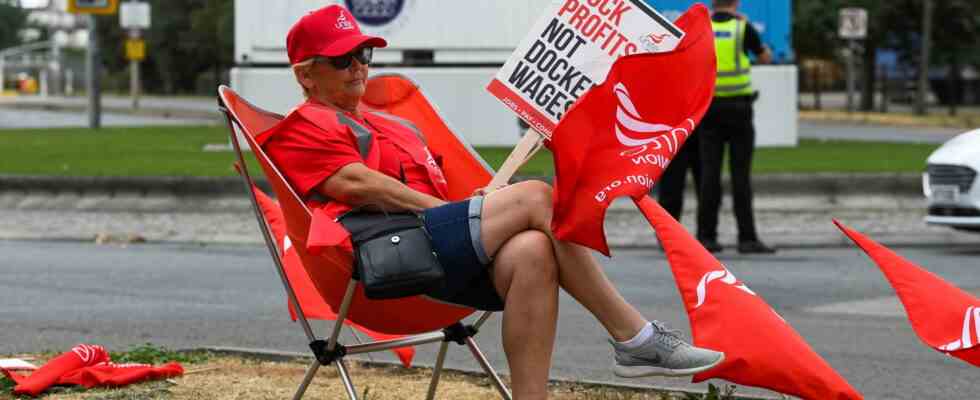Status: 08/21/2022 3:52 p.m
For the first time in more than 30 years there is a strike in Felixstowe – and then for eight days. Workers at the port north-east of London are demanding higher wages because of rising prices – as are many other sectors.
Almost 2,000 employees at Felixstowe, Britain’s largest container port, walked out after strikes at British railways. Their strike is said to last eight days – it’s the first since 1989.
The Unite union called the strike after an agreement with the employer, the Felixstowe Dock and Railway Company, failed. The offer of a seven percent wage increase is not high enough for the union in view of skyrocketing consumer prices.
Union: port “extremely profitable”
Inflation climbed to over 10 percent in the UK in July. Unite announced the strike will “send massive shockwaves through UK supply chains”.
The port in the east of England is “extremely profitable,” Unite Secretary General Sharon Graham wrote on Twitter. According to the AFP news agency, the distributions in 2020 were almost 100 million pounds – the equivalent of around 118 million euros.
Port operator “disappointed”
Felixstowe Port officials said they were “disappointed” that Unite had not accepted their offer to call off the strike. From his point of view, he offered fair wage increases of an average of eight and almost ten percent for the lowest paid employees, the port operator explained.
The port regretted the impact the strike will have on UK supply chains. Strikes are an “inconvenience and not a catastrophe,” a port worker told the British news agency PA. The supply chain has been “accustomed to interruptions” since the corona pandemic anyway.
It was the first strike in over 30 years for the port some 150 kilometers north-east of London. Around four million containers from 2000 ships are handled there every year – this corresponds to almost half of the ship freight arriving in the country.
In all likelihood, the containers in Felixstowe will remain standing for the time being.
Image: dpa
Strikes are also planned at the post office
People in Great Britain are suffering from a sharp increase in the cost of living. Wage levels are not keeping pace with the rate of inflation, food prices and rising utility bills.
In response, the latest UK strikes began on Thursday. Rail transport in particular was paralyzed for three consecutive days, including the London Underground. The strike in Felixstowe was the next in a series of industrial action that has spanned a wide range of sectors. Employees in the post office and in telecommunications, lawyers and employees of waste disposal companies have also announced walkouts for August.
Trains in Great Britain were already standing still in June. There were also regional strikes in August.

